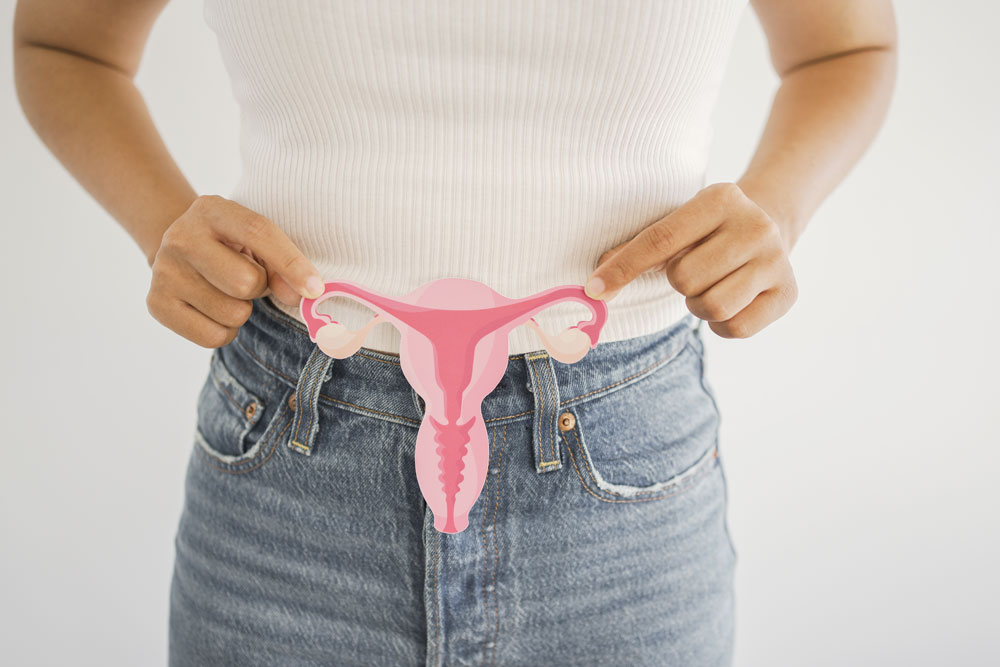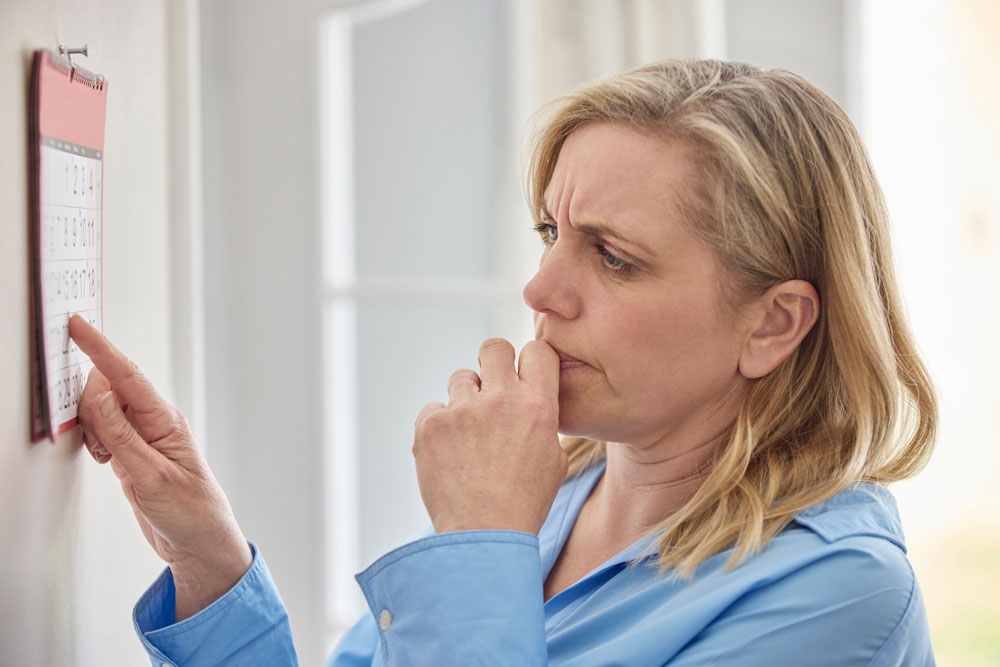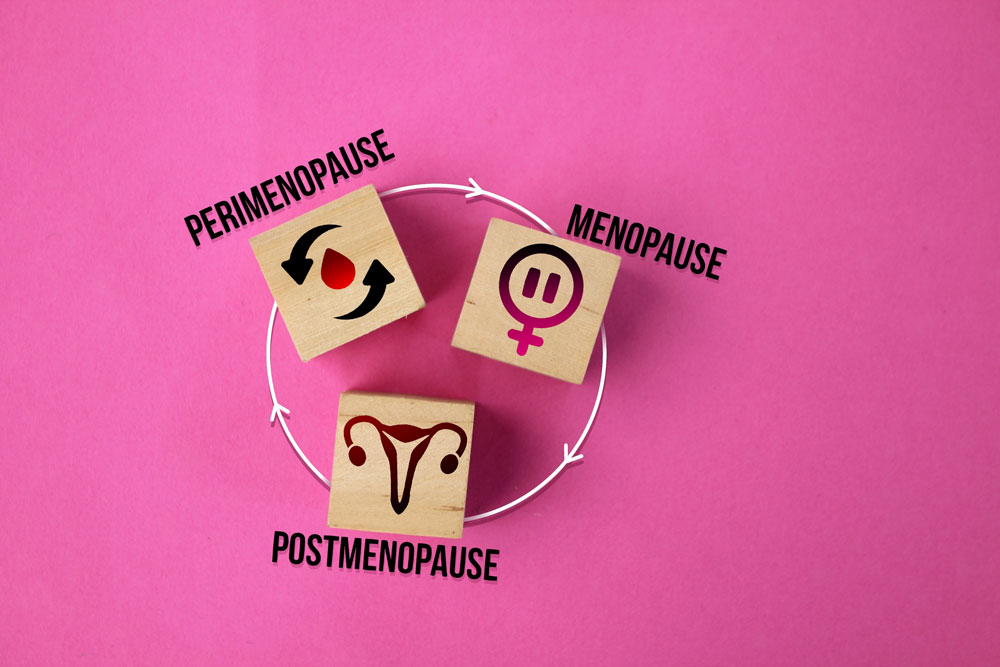If your periods are suddenly irregular, your sleep is erratic, or your moods seem unusually volatile, you might be entering perimenopause, even if you're still years away from your 50s. For many women, this transition begins in their late 30s or early 40s, but few are prepared for the physical and emotional rollercoaster it can bring.
We spoke to Dr Dhwani Prashant Mehta, Obstetrician and Gynaecologist, to help decode what perimenopause really means, and how women can take charge of their health during this phase.

What Is Perimenopause?
Perimenopause refers to the transitional phase leading up to menopause - the point when a woman hasn’t had a period for 12 consecutive months. This transition can last anywhere between 4 to 10 years.
’Perimenopause is essentially a hormonal shift that comes with the phase transitioning to menopause. This is a natural and normal progression, but comes with many emotional and physical symptoms. Oestrogen levels fluctuate significantly, which interfere with balance and synchronisation with the hormone progesterone. It is common for hormone levels to fluctuate during perimenopause - to go up and down like a rollercoaster,’ explains Dr Dhwani.
Signs You Might Be In Perimenopause
• Irregular periods – They may become longer, shorter, heavier, or lighter.
• Hot flashes and night sweats – Sudden waves of heat, often followed by chills. This could include sudden-onset sensation of heat in the upper chest and face that becomes generalised, typically for menopause as stated by Dr Dhwani. She further adds that’s it’s this decline of oestrogen levels, and narrowing of the thermoneutral zone, which triggers inappropriate peripheral vasodilation and perspiration with slight temperature fluctuations.

• Mood swings – Irritability, anxiety, or even depression.
• Sleep disturbances – Difficulty falling or staying asleep.
• Decreased libido – Changes in sexual desire or vaginal dryness.
• Brain fog – Trouble concentrating or remembering things or even following a detailed work map
’Unfortunately, many women chalk these symptoms up to stress or lifestyle, not realising that their hormones are at play,’ says Dr Dhwani. ’This leads to delayed diagnosis and unnecessary suffering.’

When Does It Start?
Perimenopause can begin as early as your mid-30s, although most women start noticing symptoms in their early 40s. Factors like genetics, lifestyle, and underlying health conditions can influence its onset.
Dr Dhwani cautions, ’Women with a family history of early menopause or those who smoke may experience perimenopause earlier than average.’
What You Can Do About It
While perimenopause is a natural phase, its symptoms can be managed effectively with the right support.
1. See A Specialist
If you're experiencing disruptive symptoms, don’t hesitate to visit a gynaecologist. Blood tests can help assess your hormone levels and rule out other conditions. Persistently elevated FSH hormone levels indicate that you are in premenopause, says Dr Dhwani.
2. Lifestyle Tweaks By Dr Mehta
- Eat plenty of fruits, vegetables, whole grains, lean protein and healthy fats because you are going to lose your lean body weight.
- Perform weight-bearing exercises like walking, hiking or strength training that help you combat and prepare in advance for osteoporosis, which is more like to occur in menopausal women.
- Dress in layers so you can remove clothing if you begin to sweat or get hot flashes.
- Use a fan or keep your house at a cooler temperature.
- Improve sleep hygiene by avoiding TV and computer screens and engaging in relaxing activities before bed.
- Limit alcohol and caffeine
- Practice meditation or other stress management techniques.
- Quit using tobacco products like cigarettes. They lead to decrease in bone mineral density and also cause vaginal dryness.
- Maintain a weight that’s healthy for you.
3. Track Your Symptoms
Maintaining a journal of your cycle, mood changes, and physical symptoms can help your doctor better understand your hormonal patterns.
4. Consider Hormone Therapy
For severe symptoms, your doctor might suggest hormone replacement therapy (HRT), low-dose birth control pills, or other medications. There are medication options specifically for combating hot flushes such as gabapentin, oxybutynin and fezolinetant. Seek a doctor ‘s prescription for those, advices Dr Dhwani Mehta
Perimenopause can take a toll on emotional well-being, which is often overlooked.
’It’s not just hot flashes and irregular periods. Anxiety, feeling low, and even panic attacks can be part of this journey. Women need to know they're not alone or overreacting - it's biology,’ says Dr Dhwani.
Perimenopause is a powerful reminder that women's bodies are constantly evolving. Awareness and proactive care are your best tools for navigating it smoothly.

Dr Dhwani’s advice – ‘Don’t ignore the signs. Talk about them, seek help, and most importantly, be kind to yourself. This phase is not the end - it’s just a new beginning. Perimenopause is not just a phase – It's a powerful transition, a time when your body speaks to you in new ways. It Definitely brings in new challenges but it also brings wisdom, strength, and the opportunity to deeply reconnect with yourself.
Understanding the changes, seeking support, and honouring your evolving needs can transform this journey into one of empowerment rather than discomfort. You are not alone. Countless women walk this path every day, quietly strong, boldly resilient.
Let’s keep the conversation open. Let’s support one another. And most importantly, let’s remind ourselves that this too is a beautiful part of womanhood - just as worthy of care, attention, and celebration.’
Let’s normalise the conversation and support each other through every phase of womanhood.